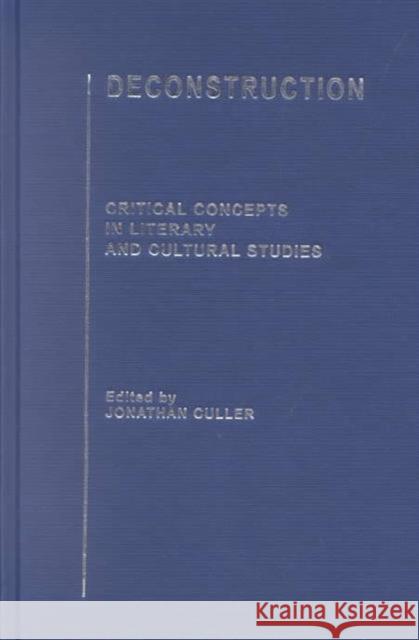Deconstruction : Critical Concepts in Literary and Cultural Studies » książka
Deconstruction : Critical Concepts in Literary and Cultural Studies
ISBN-13: 9780415247061 / Angielski / Twarda / 2002 / 1752 str.
In its most specific form, deconstruction is a mode of philosophical and literary analysis, derived from the work of French philosopher, Jacques Derrida, which questions the most basic philosophical categories or concepts. A major focus of Deconstruction has been the traditional binary oppositions that have structured Western thought since the time of the Greeks: for example, the oppositions between inside and outside, mind and body, literal and metaphorical, speech and writing, presence and absence, nature and culture, intelligible and sensible, form and meaning. Each of these oppositions is hierarchical, one of its terms has been taken to be primary, fundamental, and the other secondary and derivative. Deconstruction questions these hierarchical oppositions by showing how they have been constructed and, in the process, undoing that construction and establishing a new relation between the terms. Since deconstruction has traditionally been an activity based in philosophy, it has required, from the outset, explanation and explication. Indeed, one could argue that deconstruction has to a considerable extent been formed by critical accounts of it.











